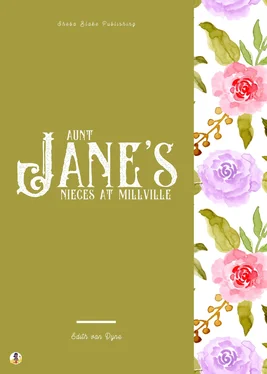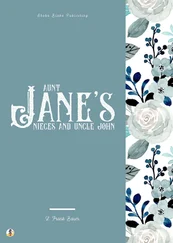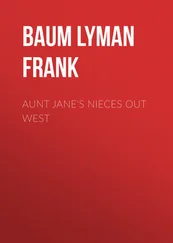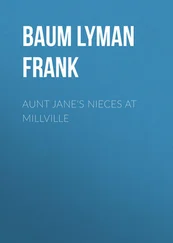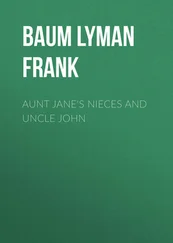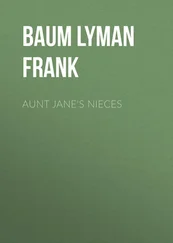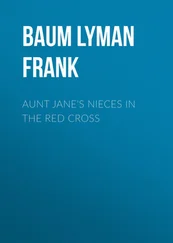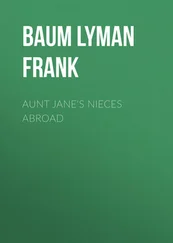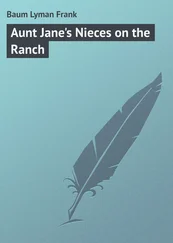Sheba Blake - Aunt Jane's Nieces at Millville
Здесь есть возможность читать онлайн «Sheba Blake - Aunt Jane's Nieces at Millville» — ознакомительный отрывок электронной книги совершенно бесплатно, а после прочтения отрывка купить полную версию. В некоторых случаях можно слушать аудио, скачать через торрент в формате fb2 и присутствует краткое содержание. Жанр: unrecognised, на английском языке. Описание произведения, (предисловие) а так же отзывы посетителей доступны на портале библиотеки ЛибКат.
- Название:Aunt Jane's Nieces at Millville
- Автор:
- Жанр:
- Год:неизвестен
- ISBN:нет данных
- Рейтинг книги:4 / 5. Голосов: 1
-
Избранное:Добавить в избранное
- Отзывы:
-
Ваша оценка:
- 80
- 1
- 2
- 3
- 4
- 5
Aunt Jane's Nieces at Millville: краткое содержание, описание и аннотация
Предлагаем к чтению аннотацию, описание, краткое содержание или предисловие (зависит от того, что написал сам автор книги «Aunt Jane's Nieces at Millville»). Если вы не нашли необходимую информацию о книге — напишите в комментариях, мы постараемся отыскать её.
Aunt Jane's Nieces at Millville — читать онлайн ознакомительный отрывок
Ниже представлен текст книги, разбитый по страницам. Система сохранения места последней прочитанной страницы, позволяет с удобством читать онлайн бесплатно книгу «Aunt Jane's Nieces at Millville», без необходимости каждый раз заново искать на чём Вы остановились. Поставьте закладку, и сможете в любой момент перейти на страницу, на которой закончили чтение.
Интервал:
Закладка:
“By dum, yer right, Bob!” exclaimed McNutt. slapping the counter with his usual impulsiveness. “I’ll do the best I kin for the rich man, an’ let the poor man alone.”
After an examination of the farm house and other buildings (which seemed in his eyes almost palatial), and a conference with Alonzo Taft, the carpenter, the agent began to feel that his task was going to prove an easy one. He purchased a fine Jersey cow of Will Johnson, sold his own flock of Plymouth Rocks at a high price to Mr. Merrick, and hired Ned Long to work around the yard and help Hucks mow the grass and “clean up” generally.
But now his real trouble and bewilderment began. A carload of new furniture and “fixin’s” was sidetracked at the junction, and McNutt was ordered to get it unloaded and carted to the farm without delay. There were four hay-rack loads of the “truck,” altogether, and when it was all dumped into the big empty barn at the Wegg farm the poor agent had no idea what to do with it.
“See here,” said Nick Thorne, who had done the hauling, “you’ve got to let a woman inter this deal, Peggy.”
“That’s what my wife says, gum-twist her.”
“Keep yer ol’ woman out’n it. She’d spile a rotten apple.”
“Who then, Nick?”
“Why, school-teacher’s the right one, I guess. They’ve got a vacation now, an’ likely she’ll come over here an’ put things to rights. Peggy, that air new furniture’s the rambunctionest stuff thet ever come inter these parts, an’ it’ll make the ol’ house bloom like a rose in Spring. But folks like us hain’t got no call to tech it. You fetch school-teacher.”
Peggy sighed. He was keeping track of his time and charging John Merrick at the rate of two dollars a day, being firmly resolved to “make hay while the sun was shining” and absorb as much of the money placed in his hands as possible. To let “school-teacher” into this deal and be obliged to pay her wages was an undesirable thing to do; yet he reflected that it might be wise to adopt Nick Thorne’s suggestion.
So next morning he drove the liveryman’s sorrel mare out to Thompson’s Crossing, where the brick school-house stood on one corner and Will Thompson’s residence on another. A mile away could be seen the spires of the little church at Hooker’s Falls.
McNutt hitched his horse to Thompson’s post, walked up the neat pebbled path and knocked at the door.
“Ethel in?” he asked of the sad-faced woman who, after some delay, answered his summons.
“She’s in the garden, weedin’.”
“I’ll go ‘round,” said the agent.
The garden was a bower of roses. Among them stood a slender girl in a checked gingham, tying vines to a trellis.
“Morn’n’, Ethel,” said the visitor.
The girl smiled at him. She was not very pretty, because her face was long and wan, and her nose a bit one-sided. But her golden hair sparkled in the sun like a mass of spun gold, and the smile was winning in its unconscious sweetness. Surely, such attractions were enough for a mere country girl.
Ethel Thompson had, however, another claim to distinction. She had been “eddicated,” as her neighbors acknowledged in awed tones, and “took a diploma from a college school at Troy.” Young as she was, Ethel had taught school for two years, and might have a life tenure if she cared to retain the position. As he looked at her neat gown and noted the grace and ease of her movements the agent acknowledged that he had really “come to the right shop” to untangle his perplexing difficulties.
“New folks is comin’ to the Cap’n Wegg farm,” he announced, as a beginning.
She turned and looked at him queerly.
“Has Joe sold the place?” she asked.
“Near a year ago. Some fool rich man has bought it and is comin’ down here to spend his summer vacation, he says. Here, read his letters. They’ll explain it better ‘n I can.”
Her hand trembled a little as she took the letters McNutt pulled from his pocket. Then she sat upon a bench and read them all through. By that time she had regained her composure.
“The gentleman is somewhat eccentric,” she remarked; “but he will make no mistake in coming to this delightful place, if he wishes quiet and rest.”
“Don’t know what he’s after, I’m sure,” replied the man. “But he’s sent down enough furniture an’ truck to stock a hotel, an’ I want to know ef you’ll go over an’ put it in the rooms, an’ straighten things out.”
“Me!”
“Why, yes. You’ve lived in cities some, an’ know how citified things go. Con-twist it, Ethel, there’s things in the bunch that neither I ner Nick Thorne ever hearn tell of, much less knowin’ what they’re used for.”
The girl laughed.
“When are the folks coming?” she asked.
“When I git things in shape. They’ve sent some money down to pay fer what’s done, so you won’t have to work fer nuthin’.”
“I will, though,” responded the girl, in a cheery tone. “It will delight me to handle pretty things. Are Nora and Tom still there?”
“Oh, yes. I had orders to turn the Huckses out, ye see; but I didn’t do it.”
“I’m glad of that,” she returned, brightly “Perhaps we may arrange it so they can stay. Old Nora’s a dear.”
“But she’s blind.”
“She knows every inch of the Wegg house, and does her work more thoroughly than many who can see. When do you want me, Peggy?”
“Soon’s you kin come.”
“Then I’ll be over tomorrow morning.”
At that moment a wild roar, like that of a beast, came from the house. The sad faced woman ran down a passage; a door slammed, and then all was quiet again.
McNutt hitched uneasily from the wooden foot to the good one.
“How’s ol’ Will?” he enquired, in a low voice.
“Grandfather’s about as usual,” replied the girl, with trained composure.
“Still crazy as a bedbug?”
“At times he becomes a bit violent; but those attacks never last long.”
“Don’t s’pose I could see him?” ventured the agent, still in hesitating tones.
“Oh, no; he has seen no visitor since Captain Wegg died.”
“Well, good-bye, Ethel. See you at the farm in the mornin’.”
The girl sat for a long time after McNutt had driven away, seemingly lost in revery.
“Poor Joe!” she sighed, at last. “Poor, foolish Joe. I wonder what has become of him?”
Four
Ethel Makes Preparation

The Wegg homestead stood near the edge of a thin forest of pines through which Little Bill Creek wound noisily on its way to the lake. At the left was a slope on which grew a neglected orchard of apple and pear trees, their trunks rough and gnarled by the struggle to outlive many severe winters. There was a rude, rocky lane in front, separated from the yard by a fence of split pine rails, but the ground surrounding the house was rich enough to grow a profusion of June grass.
The farm was of very little value. Back of the yard was a fairly good berry patch, but aside from that some two acres of corn and a small strip of timothy represented all that was fertile of the sixty acres the place contained.
But the house itself was the most imposing dwelling for many miles around. Just why that silent old sea-dog, Jonas Wegg, had come into this secluded wilderness to locate was a problem the Millville people had never yet solved. Certainly it was with no idea of successfully farming the land he had acquired, for half of it was stony and half covered by pine forest. But the house he constructed was the wonder of the country-side in its day. It was a big, two-story building, the lower half being “jest cobblestones,” as the neighbors sneeringly remarked, while the upper half was “decent pine lumber.” The lower floor of this main building consisted of a single room with a great cobble-stone fireplace in the center of the rear wall and narrow, prison-like windows at the front and sides. There was a small porch in front, with a great entrance door of carved dark wood of a foreign look, which the Captain had brought from some port in Massachusetts. A stair in one corner of the big living room led to the second story, where four large bed-chambers were arranged. These had once been plastered and papered, but the wall-paper had all faded into dull, neutral tints and in one of the rooms a big patch of plaster had fallen away from the ceiling, showing the bare lath. Only one of the upstairs rooms had ever been furnished, and it now contained a corded wooden bedstead, a cheap pine table and one broken-legged chair. Indeed, the main building, which I have briefly described, had not been in use for many years. Sometimes, when Captain Wegg was alive, he would build a log fire in the great fireplace on a winter’s evening and sit before it in silent mood until far into the night. And once, when his young wife had first occupied the new house, the big room had acquired a fairly cosy and comfortable appearance. But it had always been sparsely furnished, and most of the decadent furniture that now littered it was useless and unlovely.
Читать дальшеИнтервал:
Закладка:
Похожие книги на «Aunt Jane's Nieces at Millville»
Представляем Вашему вниманию похожие книги на «Aunt Jane's Nieces at Millville» списком для выбора. Мы отобрали схожую по названию и смыслу литературу в надежде предоставить читателям больше вариантов отыскать новые, интересные, ещё непрочитанные произведения.
Обсуждение, отзывы о книге «Aunt Jane's Nieces at Millville» и просто собственные мнения читателей. Оставьте ваши комментарии, напишите, что Вы думаете о произведении, его смысле или главных героях. Укажите что конкретно понравилось, а что нет, и почему Вы так считаете.
